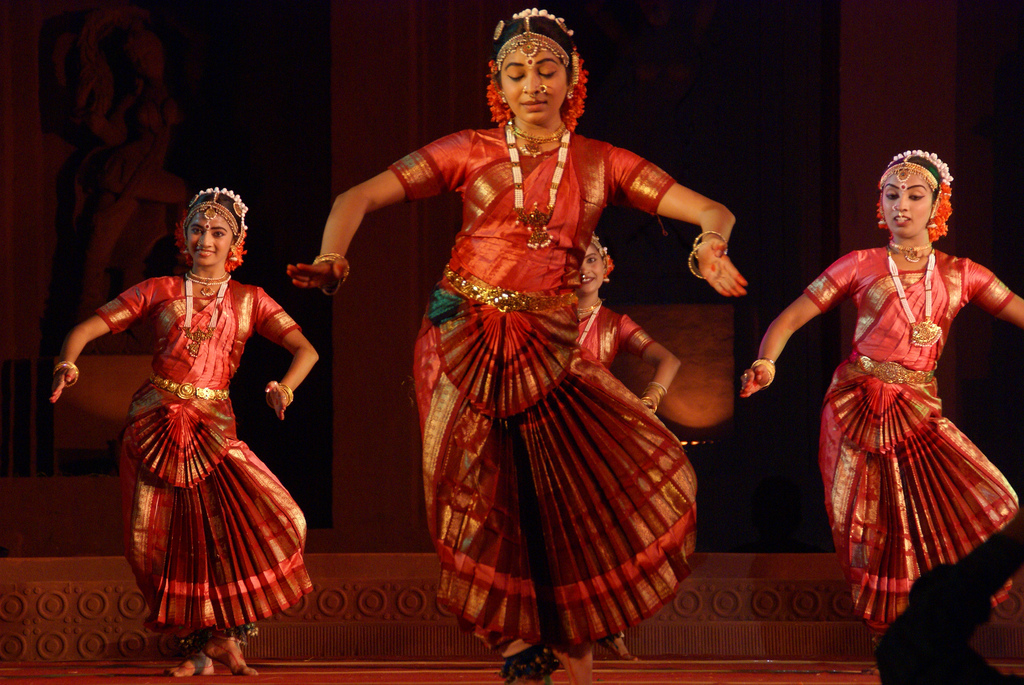Devadasi: The Godly Prostitutes of India

Background
Dancing was an art that was meant for expression of religious stories and especially evident in Hindu mythology. Lord Shiva, otherwise known as Nataraja (the god of dance), expressed the cosmic cycles of birth, life and death in his vivid dance called the Tandava for his companion Parvati. The Tandava was where the god fully conveyed his role as the destroyer in the exhilarated dance that expresses emotion, as well as the cosmic cycles in one dance.
The significance of this dance and the Devadasi was that the Devadasi were religious artists, devoted and successful women whose main purpose was to live and breathe the dance of the gods.
The Change
The term “Devadasi” is derived the ancient language of Sanskrit where “deva” means goddess and “dasi” means female servant. In the Medieval Time period, the Devadasi were part of the elite who not only performed elaborate dances, but took part in daily and festive pujas or prayers and were invited by lords and kings to perform their dances. These women were paid handsomely by the temple and held high status in their community and their devotion to the god supported their family as well. Devadasi were believed to be unworthy of mortals and were married off to a specific god (Yellamma) and danced for their god.
These devoted artists were the temple’s most religious workers, yet their status declined as the women became victims of economic, social and political turmoil. The Devadasi subjugation to the sexual exploitation first began the women becoming mistresses to the priests, kings and landowners and became strictly temple prostitutes as missionaries began criticizing the women instead appreciating the dancers that they were.
The Present
The Devadasi tradition (which transformed into religious prostitution) was outlawed in the Indian Prohibition of Dedication Act in 1982, yet lower caste women and even men are forced to become dedicated mainly to the goddess Yellamma. Yellamma transitioned from mortal to a goddess, after she was persecuted for committing adultery, when in fact she was innocent. The Devadasi women are dedicated to this goddess, since Yellma is able to understand these women and their duty as religious prostitutes, since she was knows what it is like to be a widow who could not love. These women were, and still are, purely sex workers due to severe poverty and the traditional notions on how to survive while being faithful to god.
The Lives
One Devadasi named Rani Bai told her story of how soon after her first period, she was sold to a man for $38 who raped her at the age of 14, yet never paid her for taking her virginity. In other instances, such as the situation of Belavva a 19 year old Devadasi, her work is what brings money and food to feed her family and brothers and sisters. The young girl was part of the “low” untouchable Madiga caste in Sangli which only allows people of that caste to do poor work such as prostitution, sewage collecting, etc. Belavva lived with her family in a one room hut where she “worked” while her siblings had to wait outside for her.
The worst part must be how these girls are usually found at the Saundatti Festival in Karnataka, India: a festival for the goddess Yellamma, where young girls are preyed on and get purchased from their parents to be dedicated to the goddess. Besides being trafficked as young girls, the Devadasi are at a constant risk of acquiring HIV and AIDS. An ex-Devadasi confessed her story of how her mother was a Devadasi, and how she must struggle to take care of her mother-less grandchildren who lost their mother to HIV.
Once the Devadasi age, they are unable to attract clients and their bodies become “useless” and since they cannot earn money most women continue the tradition and dedicate their daughters or beg on the streets.
The Conclusion
The Devadasi have endured enough, having to support their family off of their backs is horrific enough, these women have to live their lives in the fear of acquiring diseases because they have the responsibility to feed and take care of their family.
“You see, I know what it’s like. I watched both my daughters die, as well as at least six of my friends. I nursed many of them. Some lost their hair. Some had skin diseases. Some just became very, very thin and wasted away. One or two of the most beautiful girls became so repulsive that even I did not want to touch them.” This is from the Devadasi Rani Bai, a woman who is also infected with HIV. The Devadasi system has been exploiting women in the name of god for too long. The tradition itself has manifested and succumbed to preying on the bodies of struggling women, where their families are forced to sell their daughters in order to survive and the tradition is no longer for god or religion, its plainly human trafficking. Religion never justified prostitution, yet using it as though it does is manipulative. This “tradition” must come to an end and it begins with empowerment, and education.
[Image Attribute: patrikmloeff cc]



